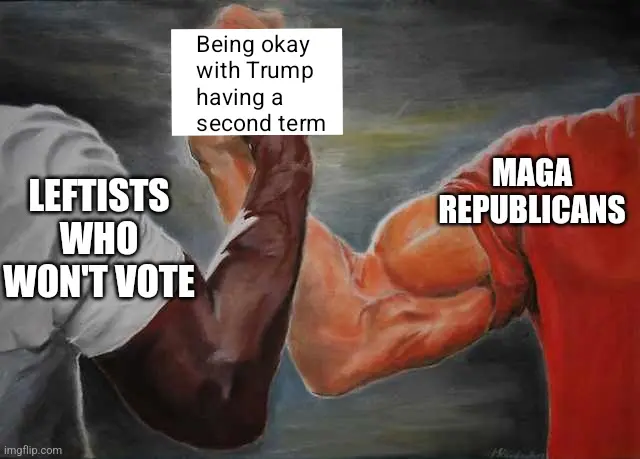There are folks preparing for armed insurrection. I would say there are probably enough of those folks already, I'm not saying they're wrong, just that it's easy to think of that as a default solution and miss the much more important foundation building work.
Collective disaster preparedness is indistinguishable from preparing the logistical side of a revolution. The art of was says that for every person on the field of battle, 7 are in support.
The idea of the revolutionary with a gun is attractive, especially for those of us socialized male. But there are a lot of critical roles that are revolutionary and are not that. In a lot of ways the glorification of the militant serves the state by making the resiatence easier to kill. Focus on the things that are harder to justify killing people over and harder for feds to figure out how to disrupt. The armed part of the Panthers were used to justify the attacks, but the breakfast program is why they were a real threat.
My favorite example from the past of a revolutionary project I worked on was our local GDC's food security committee. We started with a shared pantry for members. This allowed some members to engage in riskier things like striking because they knew they'd have food covered. Other times it just supported people through hard times. We did some guerilla gardening on some abandoned plots. I learned to forage. Eventually it grew in to a few folks regularly bringing canned food to houseless camps and providing them material support.
Houseless camps are a threat to the stability of the state. They are necessarily a lawless space which threaten the legitimacy of the state.
The biggest lesson we need to take away from the Syrian civil war is that whoever can fulfil the needs of the people becomes the regional power. The state will control resource (like food) to control people. If you can disrupt their ability to control those resources or provide alternatives, then the state has less power to leverage. Simultaneously, fascist terrorists will attack the infrastructure in order to inflict suffering and control people. In both cases, providing things like food to comrade makes resistence possible and undermines the legitimacy of an authoritarian state.
A state that cannot fulfil the needs of its people loses legitimacy. But the other pillar, aside from fulfilling needs, is the legitimacy of the infrastructure of violence. My other favorite project was an independent journalism and public records activism collective. Lucy Parsons Labs OpenOversight is a plarform for police accountability. Since police ultimately will never be held accountable, pointing this out weakens the state's ability to leverage them without losing legitimacy with the people.
So erode the narrative of the state and build it's replacement. If you read Che Guevara's Guerilla Warfare or any book like that, you'll realize that the literal fighting part is probably the smallest and least import part of a revolution. The fate of the revolution is decided long before anyone picks up a gun.
So go talk to your neighbors, find out what they need. Organize with comrades. Join food not bombs. Push local disaster prep groups to support houseless camps, since it's also indistinguishable from supporting people after a major natural disaster. If you do all the legal and easily justifiable things then if a fed infiltrates your group they just end up doing a lot of work without being able to disrupt anything.
Finally, go read as much as you can about the Rojava. Learn about Libertarian Communalism and think about how that translates to the US context.
To do any of this you need to organize. Start a book club or join one. Join FNB. Find other people. Talk to your neighbors. You would be amazed how many normal people actually want radical change. I've talked to liberals who are really radicals who haven't figured out how to make it actually work. Don't discount normal folks, because revolution is impossible without their involvement.
Edit: a note on foraging, one of the critical things for a revolutionary guerilla force is soap. Most US cities have abundant horse chestnuts (buckeyes or conkers). These are natural soap and can be used for laundry detergent, hand soap, or body soap. To anyone in an urban area, you're welcome.


